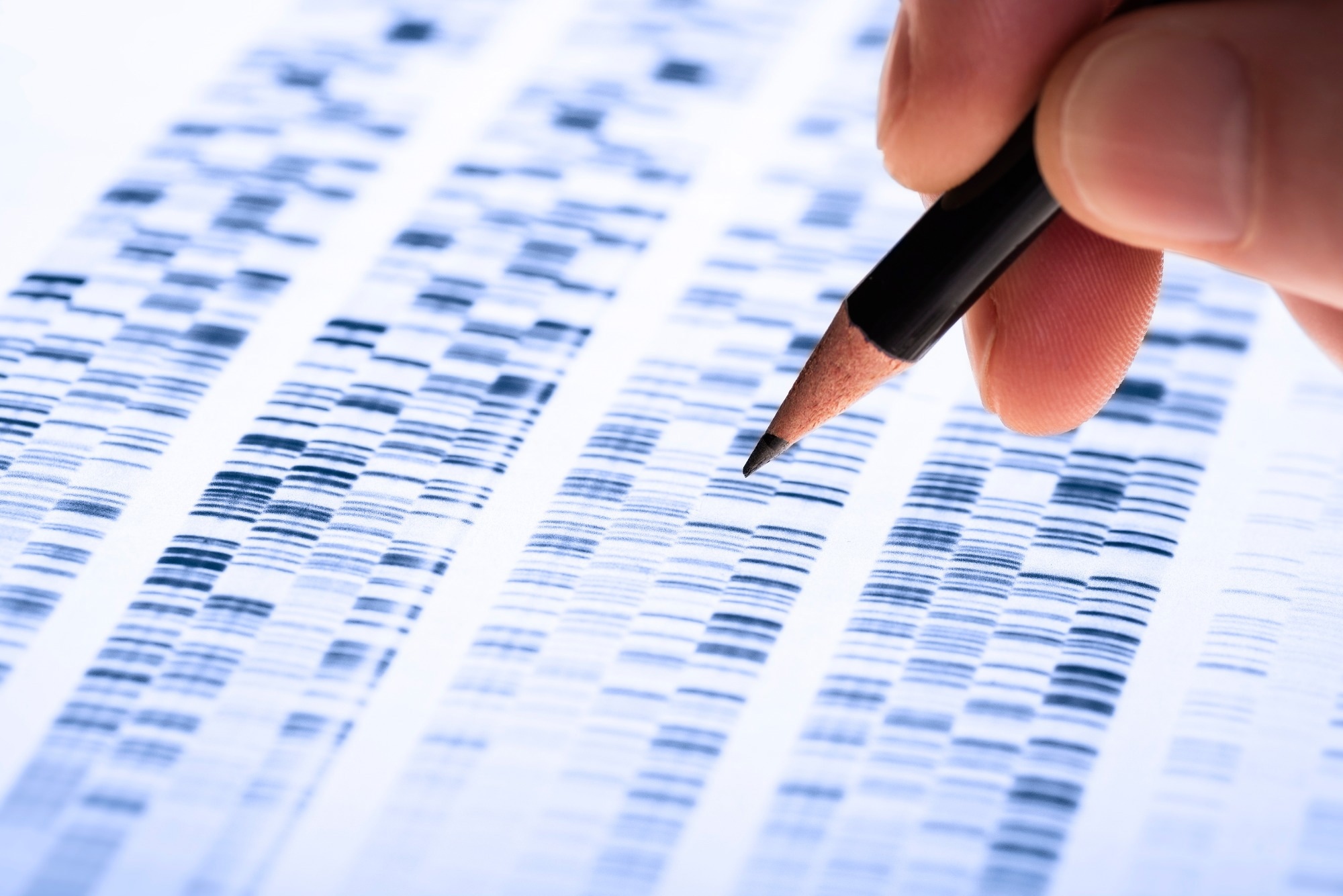The source of cancer gene data was the Catalog of Somatic Mutations in Cancer (COSMIC) in the Cancer Gene Consensus (CGC) database, which helped the researchers compare the mutational landscape of the cancer genes identified in this study with known gene annotations and derive novel insights into the extent to which they co-occur or are exclusive in tumors of various tissues of origin and their association with patient outcomes.
 Study: Mutational landscape of cancer-driver genes across human cancers. Image Credit: gopixa/Shutterstock.com
Study: Mutational landscape of cancer-driver genes across human cancers. Image Credit: gopixa/Shutterstock.com
Background
Mutations in six classes of cancer genes, oncogenes, cell surface receptors (CSRs), tumor suppressor genes (TSGs), phosphatases, kinases, and transcription factors (TFs), characterizes cancer; however, more importantly, they qualitatively or quantitatively alter the function of these genes and the proteins encoded by these genes.
Such disruptions manifest as changes in cellular behavior, e.g., increased genomic instability and proliferative signaling. Studies have also linked mutations in some oncogenes to poor clinical outcomes in patients, poor survival, recurrent tumors, and predictive biomarkers of tumors' response to cancer drugs.
In the past few years, studies have identified thousands of gene mutations involved in oncogenesis, and many of the proteins encoded by these genes are well-recognized drug targets.
This data covers only a few cancer types and not all, raising the need for a comprehensive analysis of the extent to which these cancer genes get altered in all cancer types, within each cancer, and their tissues of origin.
About the study
In the present study, researchers first compiled a list of 727 known cancer genes from the CGC database, as described above, which encompassed 383 oncogenes, 379 TSGs, 150 TFs, 75, nine, and 63 kinases, phosphatases, and CSR proteins, respectively.
Next, they screened 138 cancer-related studies for whole-exome sequencing data on 41 human cancers totaling 20,331 tumor samples, predominately of breast carcinoma and small-cell lung cancer samples, 2,585 and 110, respectively.
Further, the team summarised the number of mutated genes occurring in none, <5%, and >5% of the samples of each cancer type. Furthermore, they calculated the mutation frequency of each cancer gene and assessed the extent to which genes across all six categories of cancer genes mutate across all human cancers.
Finally, the researchers set out to find the extent of co-occurrence and mutual exclusivity of non-synonymous somatic gene mutations in the mutational landscape of all the known cancer genes.
Results
The study results revealed non-synonymous mutations in all known cancer genes, suggesting that multiple cell signaling components and processes are involved in oncogenesis.
In particular, the findings pointed towards the crucial role played by cytoplasmic enzymes, nuclear proteins, and cell surface receptors in cell signaling pathways altered during cancer.
Furthermore, the researchers noted that samples harbored different driver mutations, and their distribution within each cancer type also varied, suggesting that each patient exhibited a different set of genetic mutations that perturbed their oncogenic pathways.
For instance, drive mutations in lung cancer and melanoma are epidermal growth factor receptor (EGFR) and v-raf murine sarcoma viral oncogene homolog B (BRAF) mutations, respectively; their discovery, thus, helped the researchers develop targeted therapies (e.g., gefitinib and erlotinib for lung cancer patients) that improved patient survival and quality of life compared to chemotherapy.
So, first, clinicians need to understand the mutational profile of each cancer patient and then offer them targeted and customized treatment.
Intriguingly, only 5% of cancer genes get mutated in many cancers types, e.g., thyroid carcinoma, reinstating the notion that cancer gene mutations alone do not drive oncogenesis and might involve chromosomal/epigenetic changes, mutations in the non-coding genomic regions, microsatellite instability, DNA copy number variations, and messenger ribonucleic acid (mRNA) transcription abundance, to name a few. Thus, cancer researchers should also pursue these areas in search of cancer genes.
Conclusions
To conclude, given the limited diversity and availability of genome sequences from cancer patients and the sparsity of gene mutations, the search for more widely effective cancer drugs and biomarkers within each cancer type is slow.
Yet, the researchers discovered that in gene pairs specific to some cancers, the co-occurring mutations were 378 times more likely than exclusive mutations (284,709 vs. 796), demonstrating that genes involved in oncogenesis pathways are more likely to co-mutate.
These mutations could facilitate the discovery of widely applicable therapeutic targets and biomarkers of tumor aggressiveness for all types of tumors.
These endeavors would require new molecular tools that quickly examine the vast amount of genomics data available, unraveling the impact of every possible combination of cancer gene mutations. It would represent a leap in precision oncology, where patients would receive tailored cancer treatment based on the genetic profile of their cancer.